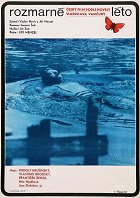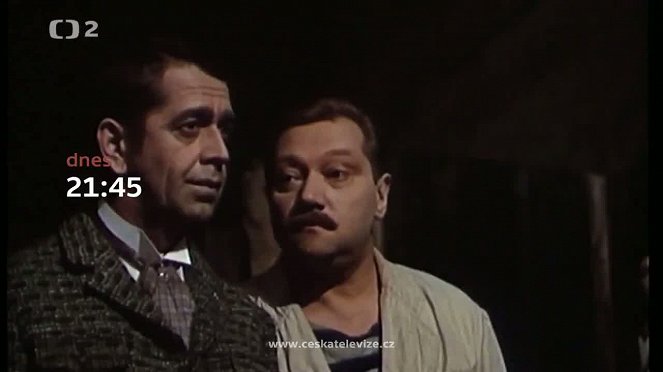Ohjaus:
Jiří MenzelKuvaus:
Jaromír ŠofrSävellys:
Jiří ŠustNäyttelijät:
Rudolf Hrušínský, Vlastimil Brodský, František Řehák, Míla Myslíková, Jana Preissová, Jiří Menzel, Bohuš Záhorský, Vlasta Jelínková, Alois Vachek (lisää)Juonikuvaukset(1)
The weather is unusually cold for June but Abbé Roch and Major Hugo still go to visit their friend, master Důra, at his river resort, and to philosophize. On the road a circus trailer car is travelling towards the small town. In the evening, Důra, the major, abbé and Důra's wife Kateřina go to the show performed by the tightrope walker and magician Arnoštek. The three middle-aged men all lust after Arnoštek's beautiful assistant Anna, and Mrs Kateřina is keen on Arnoštek. During the three consecutive nights, all three men try their luck with Anna but it seems that none will be so successful as they would like to be. Kateřina interrupts Důra's date with Anna. As the abbé and Anna fry fish in the trailer, some drunkards break in and there is a fight in which the abbé's ear is slightly torn. After a Lucullan dinner with Anna, the major falls asleep. In the meantime, Kateřina enjoys herself with Arnoštek but when he falls off the tightrope and hurts himself, she refuses to help Anna with the performance, and instead returns to her husband. The men are back bathing, and conversing, as Arnoštek's trailer car leaves the town. It is raining and master Důra remarks: "This kind of summer strikes me as rather unfortunate". (jakelijan virallinen teksti)
(lisää)Arvostelut (2)
How Menzel was able to do this is still not understood today. Bringing to the screen the warmness, kindness and extensibility of Vančura's book is an act worthy of a fool, but it works! Vančura's "unearthliness" in the mouths of the big names of Czech film does not sound violent or inappropriate - it sounds exactly as it should. Moreover, the almost poetic backdrop of a small town and a small magic variety show perfectly match the original text. "Humor is not to laugh, but to know better," Vančura wrote, and it is, after all, the most beautiful motto for this comedy, which I place on my personal leaderboard the highest of all.
()
Here we have a quite delightful Vančura transcription, which is beautiful in its rich Czech language, atypical in its use of color in 1967 and bringing the fresh charms of Jana Preissová to the movie theater screens. It may not be as relaxed and fine as Menzel in conjunction with Hrabal in other films, but the pearls of wisdom uttered by Brodsky, Hrušínský, and Myslíková are absolute. Then I can also ignore Řehák's torn ear.
()

